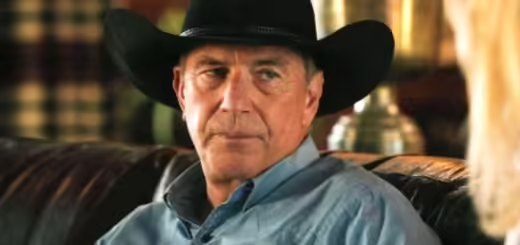Kevin Costner Reflects on His Most Disappointing Roles: “Great on Paper, But…”
In an industry where only a handful of stars ever gain enough influence to steer their careers, it’s ironically tragic that Kevin Costner, once one of the most powerful names in Hollywood, ended up using that very power to derail his mainstream momentum.
From the late 1980s through the mid-1990s, Costner was one of the industry’s brightest stars. He consistently delivered box office hits, earned critical acclaim, and became a regular fixture during awards season. His 1990 directorial debut Dances with Wolves was a game-changer—earning seven Academy Awards, including Best Picture and Best Director. At just 35, Costner had become one of the most sought-after figures in Hollywood, with the film becoming the highest-grossing Western of all time.
His hot streak continued with hits like Robin Hood: Prince of Thieves, Oliver Stone’s JFK, the iconic romance The Bodyguard, and Clint Eastwood’s A Perfect World. Costner was at the top of the A-list. But in Hollywood, one misstep can change everything—and for Costner, that misstep came in the form of Waterworld and The Postman.
While Waterworld eventually gained a cult following, The Postman was a critical and commercial disaster. It swept the Razzies and significantly damaged Costner’s reputation, effectively removing him from the top tier of Hollywood talent for the better part of two decades.
His comeback attempts were rocky. He clashed with the producers of Message in a Bottle over a mere ten seconds of cut footage. Political drama Thirteen Days failed to earn back its budget, and 3000 Miles to Graceland was another box office disappointment.
Costner hoped Message in a Bottle would offer a meaningful experience—after all, it gave him the opportunity to work alongside one of his heroes, Paul Newman. And although it was financially successful, it still earned him a Razzie nomination for Worst Actor. His next project, Dragonfly, aimed for a different tone, but critics panned it so harshly that it became the lowest-rated film of his career.
Reflecting on these misfires, Costner said:
“You take a movie like Dragonfly or Message in a Bottle—movies that on paper were really good, I think were ultimately flattened out into a very soft love story. There is a reason why I did those movies, but you don’t ultimately get to see it, and I don’t understand why.”
While Message in a Bottle had personal value, Dragonfly felt more like a studio attempt to cash in on the success of The Sixth Sense—a move that backfired. Both projects had potential when he signed on, but the final results failed to connect with audiences.


